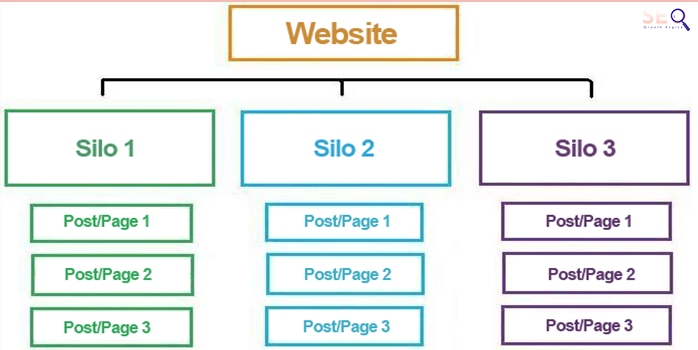You need a plan to ensure you are giving the most appropriate response to the search query.
Keyword mapping could give you the edge to see your website in search engine results pages (SERPs).
Whether you’re auditing your SEO optimization, launching a brand new site, or branching out into a new area of expertise, keyword mapping can help you get the desired results.
Investing in keyword mapping is the key to achieving long-term success with search engine optimization.
If you take the proper steps to create great content, you’ll see a boost in website traffic, quality backlinks, and more leads. Start now and reap the rewards later!
In this article, we’ll provide a step-by-step guide to planning your keywords and a strategy for ensuring your web pages are relevant to search engines.
What Is Keyword Mapping?

Let’s take a simple analogy. What is the purpose of Google Maps? Google maps are here to locate destinations. The same goes for keyword mappings as well.
Keyword mapping aids you in assigning keywords to each page.
By creating a “map” of relevant SEO keywords and key phrases, you can ensure your website is search engine optimized. This helps you generate more traffic and increase conversions. So, let’s get started and make your website stand out from the crowd!
Organizing your website into groups of related keywords or keyword clusters can create a strong topical structure and boost your conversions. By grouping relevant keywords within the same topic, you can help create a better user experience, leading to more conversions.
If you want to rank higher on Google, optimizing and making your URLs relevant to your target keywords is key. Make sure you optimize each URL for the best possible results!
Significance Of Keyword Mapping
Keyword mapping is a stepping stone for any SEO or website owner, as it can dramatically improve your content strategy! Here is how key mapping can change your SEO game:
- Identifying Keyword Gaps: Your website’s ranking can suffer if you need to include all the essential keywords in your content strategy. A structured Keyword mapping can help you spot any keyword gaps and create pages (or even new ones) to target them.
- Avoid Keyword Overlapping: By mapping out your keywords, you can ensure each page has unique keywords and avoid rank cannibalization and duplicate content. This will help keep your pages from conflicting with one another.
- Internal Linking: By properly organizing and mapping your keywords to the right web pages, you’ll be able to maximize the effectiveness of your internal link building, connecting related pages, and boosting conversions.
Keyword Mapping Tools
You can do keyword mapping manually.
BUT… Discovering the tools can make the process hassle-free!
With our selection of resources, you can take care of the hard parts quickly and efficiently, making your job easier.
(i) Free Tools
Are you looking to improve your SEO effectiveness? Do you want to take your website ranking to the next level?
Take advantage of the Free keyword mapping tools –
Google Suggest, related searches, Google Search Console, Google Trends, and Answer The Public.
(ii) Paid Tools
If you’re an ardent fan of paid tools, we won’t disappoint you.
You can give it a try to:
- Mangools KWFinder
- Ahrefs
- SEMRush
- SpyFu
- Keywords Everywhere (Chrome Extension)
- Serpstat
- UberSuggest
- Moz Keyword Explorer
With these tools, you’ll easily find the perfect keywords for better SEO and more conversions.
How To Perform Keyword Mapping
Till this point, you have an idea about keyword mapping and its importance. Let’s focus on the execution part. Here is the step-by-step plan for effective keyword mapping.
1. Preparing Your Target Keywords

The process of keyword mapping starts with simple keyword research. Here you have to consider both long-tail as well as short-tail keywords.
Identify the keywords you already rank for, as well as those you want to target. By doing so, you can maximize the potential of your conversions.
Utilizing the focus keyword can help you uncover a vast array of additional keywords to use in your search!
When employing a keyword research tool, make sure to use the focus keyword to pinpoint all words and phrases that you’re planning to link to your website.
You should also take a look at what keywords your competition is using and prioritize them based on your keyword plan.
2. Topic-Wise Keyword Grouping

You have the keywords ready. Now it’s time to get things organized!
Group your keywords into buckets based on search intent. That way, you can create a set of words that all answer the same question.
Pick one of these as your primary keyword while using the others as an auxiliary.
This strategy will help you determine the structure of your website and ensure that visitors and search engine spiders can follow a logical path.
Maximize the effectiveness of your digital marketing campaign by grouping your keywords and thinking about potential URLs for pages.
Let’s assume your focus keyword is (digital marketing). Here you can include pertinent variants, such as (paid ads).
With smart keyword and URL organization, you’ll be well on your way to converting more leads.
For optimum keyword mapping results, ensure your URL contains the focus keyword you wish to rank for!
Including your keyword in the web address will help users quickly understand what your page is all about, and even though it only contributes to a small part of your ranking, it’s worth doing.
3. Keyword Map

It’s time to begin creating your keyword map.
Let’s start by structuring your website in an organized, sensible way.
This will give you the foundation you need to maximize conversions and make your site successful. So don’t delay – let’s get started!
Create a spreadsheet for organization and save yourself time. Make a subdirectory and fill it with individual pages. It’s an easy way to stay organized!
Start by creating a page title, meta description, header tags, and other elements using your primary keyword.
Then, list your secondary and tertiary keywords in a separate column.
If you’re optimizing an existing site, jot down the existing titles, H1 tags, and more, and update them with recommended versions. This way, you’ll have the key elements you need to get the best possible results.
Take the extra time to ensure your content is unique across all pages.
To help you out, use this spreadsheet to track notes about body copy, word count, and images. Remember to double-check your work to ensure each page is unique. Doing so can help increase your conversions!
4. Create Your Content Silo

Content Silo is basically a website structure that helps to organize related content. Simply put, it is an architecture to group similar content revolving around related keywords.
(i) Create A Hierarchy
Let’s say your focus keyword is ‘Social media marketing.’ Here you can interlink it with several subtopics like Instagram Marketing, Facebook Marketing, etc.
As the above example explains, creating a silo requires streamlining your keyword mapping strategy by creating relevant grouping.
Make sure your content revolves around the search intent. This will add value to your keyword hierarchy.
(ii) Content URL
While planning for your keyword mapping strategy, make sure you pay some attention to your URLs.
Here are the best practices:
- Keep it simple.
- Make it readable.
- Place them seamlessly throughout your website.
- Keep things organized.
Following these practices ensure your keywords are optimized for the best results.
5. Plan Your Content

Hurray! You are at the last stage of creating your keyword mapping strategy.
It’s time to plan your content. That too in advance.
Here comes planning into the picture.
Creating a content calendar drives you to stay consistent with your efforts.
Make sure you prepare 30 days’ content in advance.
For each keyword phrase, create one article to help optimize your content for search engine success.
With a comprehensive plan in place, you can maximize your conversions.
Creating the best content for your target keyword phrase is key to success.
Performing a Google search of your target keyword phrase and studying the top 2-3 results is a great starting point.
Doing this will help you better understand what type of content you should create to increase your chances of ranking.
To ensure your content is engaging, spice it up with diverse media like photos, videos, quotes, graphics, and polls!
Your readers will be sure to stay on their toes and stay engaged.
Over To You
We hope that you have already realized how powerful keyword mapping is for your online presence.
Make sure you know that keyword mapping is not a one-of-a-kind type strategy. It requires a decent level of consistency and hard work.
So, are you up for it? Have you prepared your keyword mapping strategy yet?
Do you need any help with your keyword mapping strategy? Are you looking for a keyword mapping template?
Don’t hesitate! Feel free to ask. We will be more than happy to help you.
Read Also:








